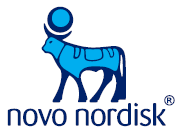Up to 25% of Americans have a chronic disease that has serious implications for them and for clinicians, public health authorities and payers. Nonalcoholic fatty liver disease (NAFLD) increases the risk of advanced liver disease and is a leading cause of liver transplants in the United States. As many as 6.5% of Americans—including 30%–40% of people with type 2 diabetes—have a more serious form of NAFLD, nonalcoholic steatohepatitis (NASH), which causes severe liver damage and, often, fibrosis.
Because NASH is not well known and is mostly asymptomatic in its early stages, it often goes undiagnosed until it progresses to cause irreversible harm, requiring complex and costly treatment. A new white paper, A Rallying Cry: Improving Coordinated Care for People With Nonalcoholic Steatohepatitis, summarizes a discussion by an expert roundtable convened by NCQA, outlining recommendations for increasing awareness and optimizing care for patients with NASH.
The white paper includes strategies for:
- Identifying patients with NASH early in the disease.
- Increasing primary care physician education on risk factors and screening tools.
- Delivering ideal primary care and improving care coordination.
- Providing culturally appropriate patient education and counseling.
- Expanding health insurance coverage of medical nutrition therapy for NASH.
The NASH roundtable and A Rallying Cry: Improving Coordinated Care for People With Nonalcoholic Steatohepatitis were supported by Novo Nordisk.

